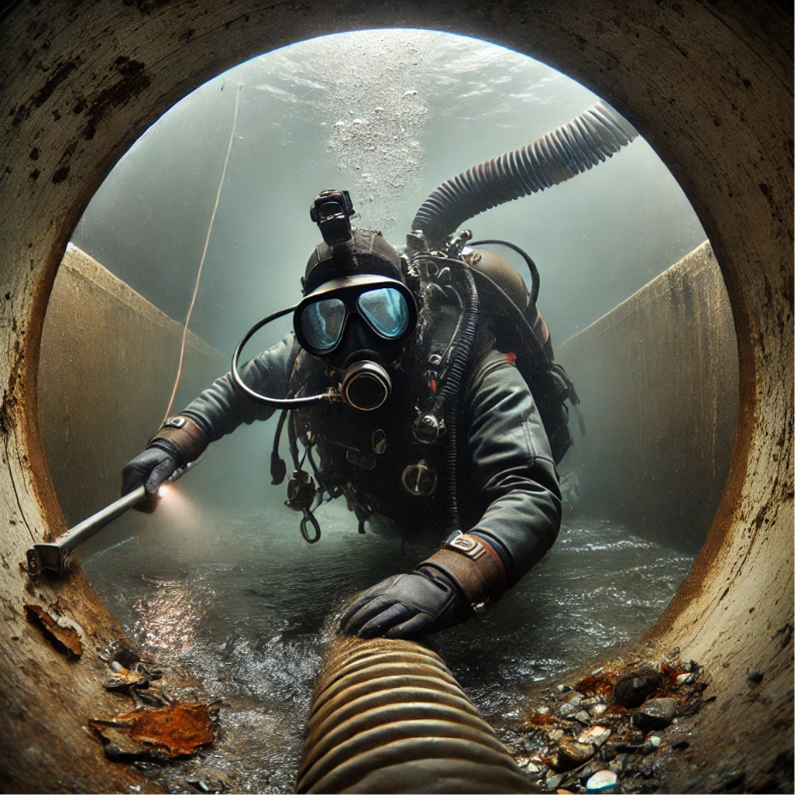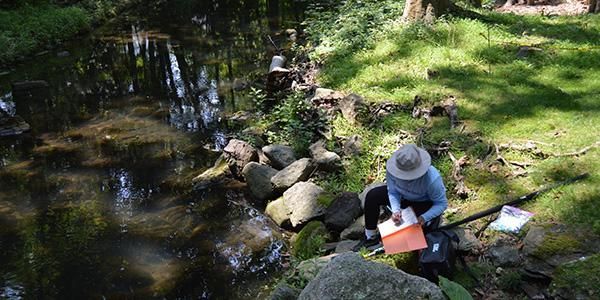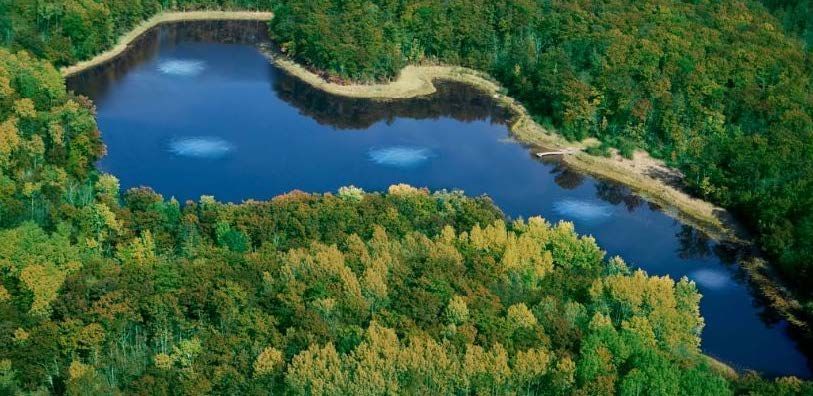Confined Space Diving: A Critical Component in Cleaning Florida’s Stormwater Systems
Florida’s vast network of stormwater systems plays a crucial role in managing rainfall, preventing flooding, and protecting the environment. However, these underground drainage structures require regular maintenance to remain functional. One of the most challenging and specialized tasks in this field is confined space diving, which involves entering and working in hazardous, enclosed environments such as stormwater retention vaults, culverts, and underground pipes.

What is Confined Space Diving?
Confined space diving refers to underwater work performed in restricted environments where direct access to the surface is limited or obstructed. Unlike open-water diving, confined space diving requires specialized training, equipment, and safety protocols to manage the unique risks involved. These include low visibility, strong currents, hazardous gases, and limited mobility.
In Florida, where heavy rains and hurricanes frequently test the capacity of stormwater systems, confined space diving is often needed to remove sediment buildup, debris, and blockages that impede water flow. Without regular maintenance, these obstructions can lead to flooding, property damage, and environmental contamination.
The Role of Confined Space Divers in Stormwater System Maintenance
Confined space divers are essential for ensuring that Florida’s stormwater infrastructure remains operational. Their primary responsibilities include:
1. Removing Debris and Sediment Accumulation
Over time, lake stormwater systems accumulate debris, such as leaves, trash, and soil, which can reduce the efficiency of drainage systems. Confined space divers use suction equipment, dredging tools, and manual techniques to clear obstructions from pipes and vaults.
2. Inspecting and Repairing Infrastructure
Divers conduct visual inspections and use underwater cameras to assess the condition of

stormwater structures such as culverts, weirs, outfall structures, and storm grates. They identify cracks, leaks, and structural weaknesses that require repair to prevent system failure.
3. Ensuring Compliance with Environmental Regulations
Florida state and federal environmental laws require stormwater systems to be maintained properly to prevent pollutants from entering natural water bodies. Confined space divers help municipalities and private entities comply with these regulations by ensuring that stormwater retention areas and drainage pipes remain free of contaminants.
Safety Challenges in Confined Space Diving
Due to the high-risk nature of confined space diving, strict safety measures must be followed. The most common challenges include:
- Low Visibility: Many stormwater systems have murky water, making it difficult for divers to navigate.
- Hazardous Gases: Toxic gases such as methane, hydrogen sulfide, and carbon monoxide can accumulate in confined spaces, posing serious health risks.
- Limited Access and Egress: Restricted entry points mean divers must rely on surface teams for lifeline communication and emergency extraction.
- Strong Currents and Water Flow: Sudden changes in water flow can create dangerous conditions for divers working in drainage systems.
To mitigate these risks, confined space divers follow strict protocols, including:
- Using surface-supplied air systems for continuous breathing support.
- Wearing full-face masks with two-way communication.
- Conducting pre-dive atmospheric testing for toxic gases.
- Employing tethered diving techniques for enhanced safety.
Confined space diving is a vital aspect of stormwater system maintenance in Florida. Without the expertise of trained divers, drainage infrastructure would become clogged, leading to increased flood risks and environmental harm. By combining advanced technology with rigorous safety standards, these professionals ensure that stormwater management remains efficient and effective in protecting communities across the state.






